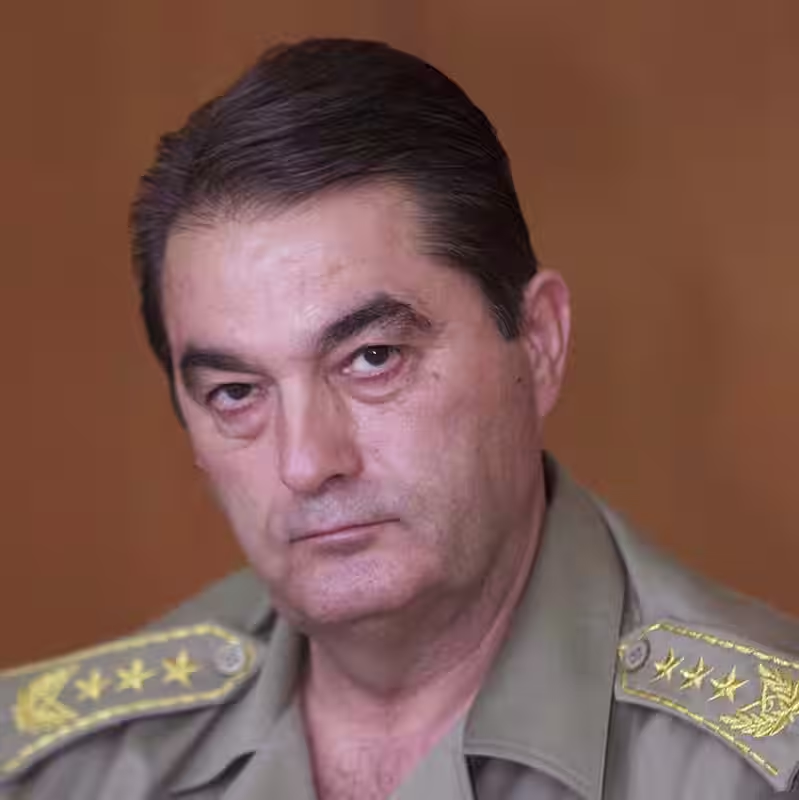Nebojsa Pavkovic, Convicted War Criminal, Dies at 79
Nebojsa Pavkovic, the former Yugoslav Army general convicted of war crimes during the Kosovo conflict in the late 1990s, has died at the age of 79. His death was confirmed by Serbian state media on Monday in Belgrade, just weeks after his early release from a Finnish prison due to deteriorating health.
From Military Commander to Convicted War Criminal
Nebojsa Pavkovic served as a top commander in the Yugoslav Army during one of the most violent chapters in modern European history—the Kosovo War. In 2009, the International Criminal Tribunal for the Former Yugoslavia (ICTY) found him guilty of crimes against humanity, including murder, forced expulsions, and persecution targeting Kosovo’s ethnic Albanian population.
He was sentenced to 22 years in prison for his role in orchestrating a campaign of terror that led to the deaths of nearly 10,000 people and the displacement of approximately 800,000 others.
Early Life and Rise Through the Ranks
Born on April 10, 1946, in Senjski Rudnik, a small village in central Serbia, Pavkovic began his military career in 1970 with the Yugoslav National Army. By 1994, he was stationed in Pristina, Kosovo’s capital, and quickly ascended the chain of command.
In 1998, Serbian strongman Slobodan Milosevic appointed him commander of the Third Army, which spearheaded military operations in Kosovo against ethnic Albanian insurgents. What began as a counterinsurgency effort soon escalated into a systematic campaign of violence against civilians.
The Kosovo Campaign and International Condemnation
Under Pavkovic’s command, Serbian forces engaged in widespread atrocities, including:
- Mass killings and unlawful arrests
- Sexual assaults and torture
- Shelling of civilian neighborhoods
- Forced displacement of entire villages
The ICTY later concluded that these actions were not isolated incidents but part of a coordinated strategy to “ensure Serbian control over Kosovo” through fear and ethnic cleansing.
NATO’s 78-day bombing campaign in 1999 ultimately forced Milosevic to withdraw Yugoslav forces from Kosovo, ending the conflict but leaving deep scars across the region.
Trial, Conviction, and Controversial Release
Pavkovic was indicted by the ICTY in 2003 but initially resisted extradition. He even ran for Serbia’s parliament later that year amid a nationalist resurgence. However, under pressure from the European Union and international bodies, Serbia surrendered him to The Hague in 2005.
He denied all charges but was found guilty on February 26, 2009, alongside four other senior officials. Sentenced to 22 years, he served his term in a Finnish prison—standard practice for ICTY convicts.
Last month, citing severe health decline, the Serbian government formally requested his early release. Finland granted the request, and Pavkovic returned to Belgrade, where he was hailed by some as a “national hero.” Serbian President Aleksandar Vucic praised him, saying, “He dedicated his life to serving the country and the army.”
A Divisive Legacy
To many in Serbia, Pavkovic remains a symbol of patriotism and military loyalty. To survivors and human rights advocates, however, his death closes a painful chapter without full accountability.
His conviction stands as a reminder of the tribunal’s efforts to deliver justice for the more than 250,000 lives lost across the Yugoslav wars of the 1990s—a conflict that introduced the chilling term “ethnic cleansing” into global discourse.
Sources
The New York Times: Nebojsa Pavkovic, Yugoslav General Convicted of War Crimes, Dies at 79
International Criminal Tribunal for the Former Yugoslavia (ICTY)




